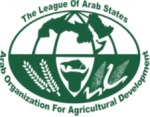Diao, Xinshen; Pauw, Karl; Raouf, Mariam; Siddig, Khalid; Thurlow, James
Based on a set of economywide databases for Sudan that have detailed content on agricultural production and processing, this study diagnoses the transformation of Sudan’s agrifood system against a background of broad economic growth and transformation. Sudan’s agrifood system registered only modest GDP growth between 2011 and 2019. Moreover, little change was seen in the structure of the system over this period. The share of total employment in agriculture fell significantly, contributing to some structural change in the broad economy. However, agriculture continues to absorb almost half of Sudan’s total employment, while having the lowest labor productivity across the main economic sectors. The growth in Sudan’s agrifood system between 2011 and 2019 was mainly driven by expansion in domestic market-oriented value chains. Agrifood value chains that are focused on exportable or imported commodities remain small with below average growth. Comparing sources of future growth in Sudan’s agrifood system across ten different agrifood value chains shows that fruits, root crops, and cereals rank highest in their potential to contribute to a range of development outcomes, including reductions in poverty, improvement in diet quality, job creation, and growth in national GDP. Although the livestock ranks lower per unit of growth, it is distinct from the higher-ranked value chains in that it has a sizable impact on all four development outcomes, while as a large and established sector in Sudan even small gains in productivity can have significant impacts in absolute terms.
